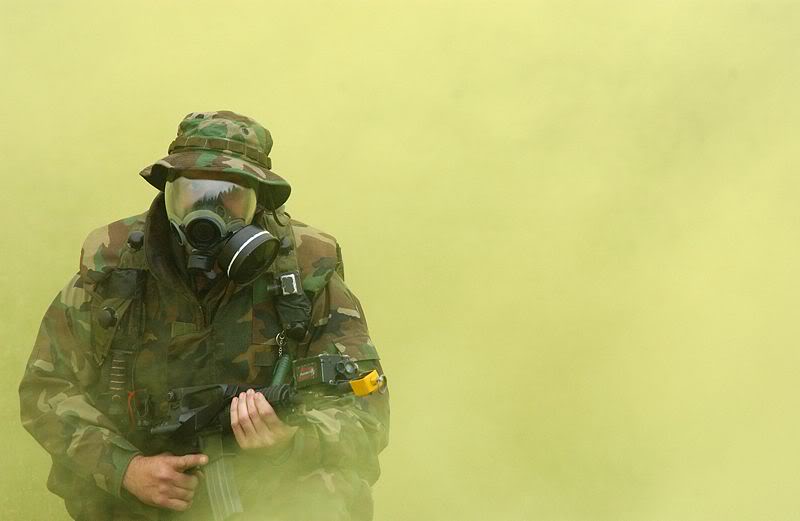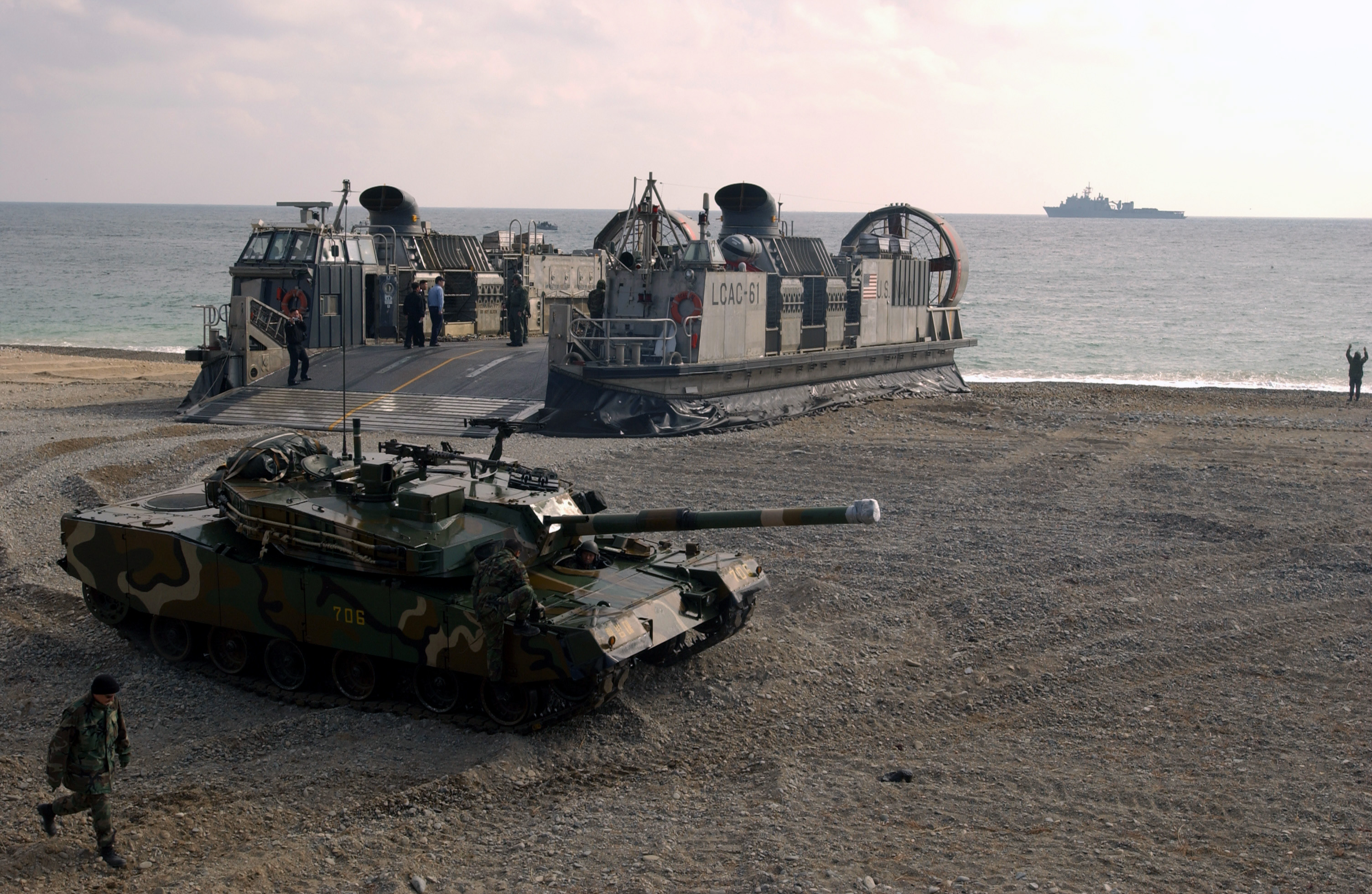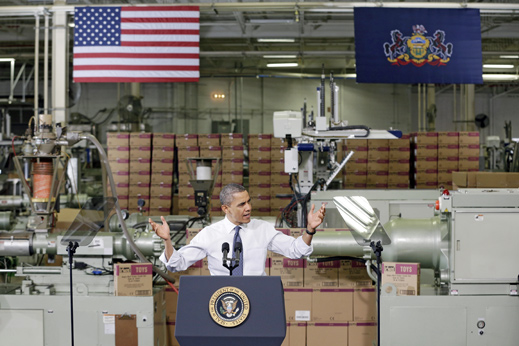In Part II of this article, the dangers posed by the terrorist acquisition of chemical weapons will be addressed. Part II will also examine NATO’s efforts in combating the proliferation of these weapons.
Chemical Terrorism:
Like biological weapons, there are multiple problems associated with producing chemical weapons. In order to produce sufficient quantities of chemical weapons, terrorists would require a large and well-funded operation, something which greatly increases the chances of discovery. Alternatively, a small operation could produce their desired chemical agent incrementally, a process that may avoid suspicion. Nevertheless, these agents would have to be stored safely in a way that would not reduce their effectiveness over time. According to the Pentagon, it would take up to 18 years to produce a sufficient quantity of sarin gas to kill 10,000 people, even assuming that it was manufactured correctly and maintained at its maximum lethality.
There are a variety of types of chemical agents that could be used by terrorists in pursuit of their objectives, including nerve agents, blister agents, choking agents, and blood agents. The deadliest nerve agents are commonly held to include tabun, sarin, soman, GF and VX.

Nerve agents, in general, are dispersed in an aerosolized form and can be inhaled or absorbed. Upon exposure to a low dose of nerve agent, symptoms typically include an increased production of saliva, a running nose, and a feeling of chest pressure. Short-range vision also deteriorates and is accompanied by headache. Exposure to higher dosages, however, can lead to respiratory difficulties, vomiting, involuntary urination/defecation, and convulsions. If left untreated, death usually occurs from a combination of muscular paralysis affecting the respiratory system and the suppression of the respiratory centre of the central nervous system, leading to suffocation.
Blister agents are oily substances that harm victims via inhalation or contact with skin. Mustard gas is a well-known blister agent, and can be dispersed in liquid or aerosol form. Unlike nerve agents, death is not a common consequence of exposure to blister agents. Typically speaking, blister agents produce severe chemical burns, blindness, and permanent damage to the respiratory system.
Choking agents, as the name implies, target the respiratory tract of the victim and are delivered via inhalation. Upon exposure, choking agents cause severe irritation to the victim’s alveoli resulting in a constant flow of fluid into the lungs followed by death. Common choking agents include chlorine and phosgene gas.
Finally, blood agents affect the blood of the victim, and inhibit the ability of blood cells to utilize and transfer oxygen. Perhaps the most well-known blood agent is hydrogen cyanide, a chemical agent that was used by the Nazis to exterminate Jews during the Holocaust. If this substance is inhaled, early symptoms may include headache, heart palpitations, and respiratory difficulty. More advanced symptoms include vomiting, convulsions, and respiratory failure.

NATO’s Role:
Taken in their entirety, nuclear, biological and chemical weapons constitute “weapons of mass destruction” because they kill indiscriminately. Accordingly, WMDs are widely considered to violate the rules of war and their proliferation is strictly prohibited by international law. Furthermore, the military application of WMDs by a ‘rogue’ state can justify military intervention by the international community, thereby providing a strong incentive to avoid their use. Syrian President Bashar al-Assad, cognizant of this fact, agreed to surrender his declared chemical weapons stockpile after a chemical attack outside Damascus killed hundreds of people last year. Terrorist organizations lack a similar incentive, and this is precisely what makes them more dangerous. As a result, preventing the proliferation of WMDs is of the utmost importance because it reduces the likelihood of terrorists acquiring these weapons.
In order to combat the proliferation of WMDs, NATO launched the Weapons of Mass Destruction Centre in May 2000 as a result of the Initiative on Weapons of Mass Destruction that was approved by the 1999 Washington Summit. This organization was designed to strengthen dialogue and common understanding of WMD issues among member states, and to enhance consultations regarding non-proliferation, arms control, and disarmament, amongst other things. In addition to the creation of the WMD Centre, the Initiative also led to the creation of the NATO-Russia Council at the Rome Summit in 2002 in order to promote cooperation and contribute to a common space of peace, stability and security. Some of this cooperation involves the coordination of missile defence and the safeguarding of nuclear and radiological weapons.
More recently, NATO’s moves to prevent the proliferation of WMDs was considered at the Chicago Summit in May 2012 where the NATO heads of state approved the results of the Deterrence and Defence Posture Review. The Review reiterates NATO’s commitment to maintaining an appropriate level of deterrence and defence, while also reaffirming that arms control, disarmament and non-proliferation play an important role in NATO’s security objectives.
In summary, the threat posed by weapons of mass destruction falling into the hands of a competent terrorist organization is very real. As demonstrated by the reaction of the United States to 9/11, another attack of that magnitude could have massive ramifications for the international community, and may catalyze substantial foreign policy changes. Accordingly, the proliferation of WMDs must be harshly condemned and strictly monitored. Unless the international community stands united in this effort, it is only a matter of time before they are again used on civilians.





